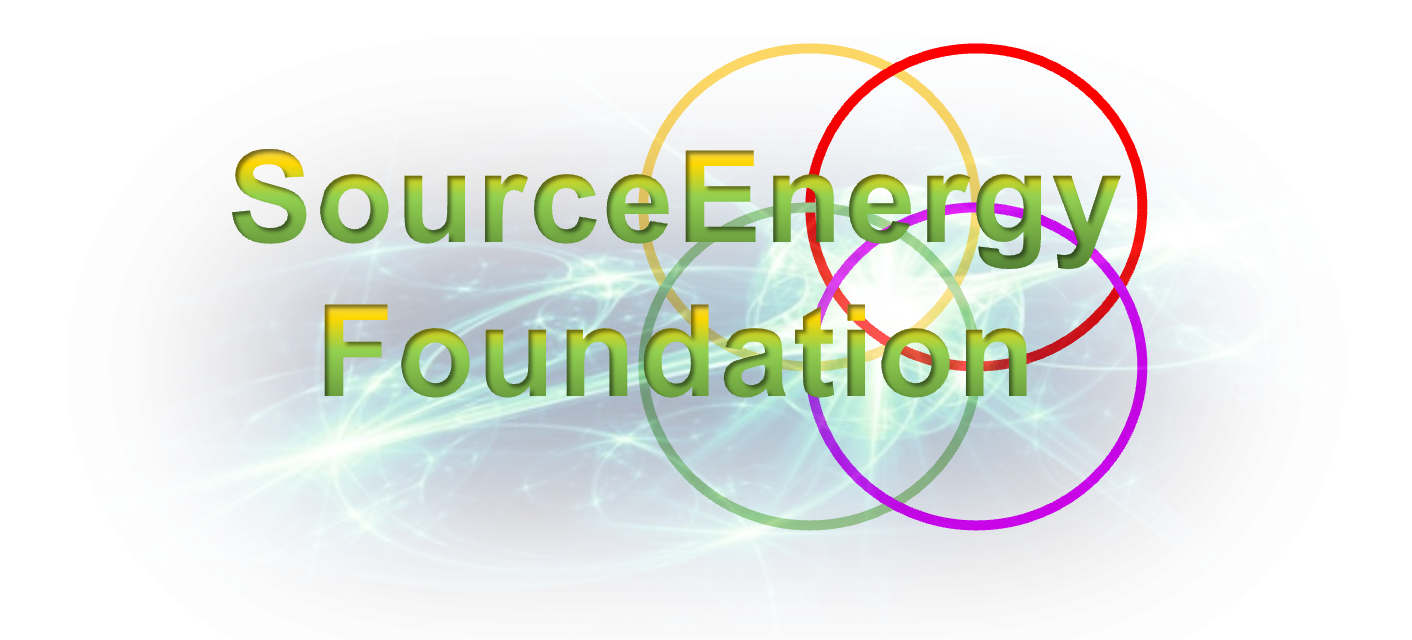The Book of Inclusivity and Equality
The Sermon on the Mount, the cornerstone for this book, provides a foundation for understanding inclusivity and equality from a Wealth Ecology perspective. The Wealth Ecology Model underscores the significance of each person and the imperative of equitable practices, aligning closely with the ethical and moral teachings presented in the Sermon.
Here’s how the Sermon on the Mount echoes the tenets of Wealth Ecology:
- Blessedness of the Marginalized:
- The beatitudes celebrate the poor, the meek, and those who hunger for righteousness, positioning them as deserving of God’s kingdom. This reflects Wealth Ecology’s emphasis on the intrinsic value of all individuals, irrespective of their economic status.
- Ethical Wealth Creation:
- The call to ethical behavior, such as mercy, purity in heart, and peacemaking, resonates with Wealth Ecology’s principle that wealth generation should not compromise moral integrity. Wealth Ecology advocates for wealth creation that is aligned with ethical and just practices.
- Redistribution for Social Justice:
- The instruction to give to the needy quietly, without seeking recognition, can be seen in the light of redistributive justice, a core aspect of the Wealth Ecology Model. It prioritizes the well-being of the community and the fair distribution of resources.
- Equality and Non-Judgment:
- The admonition against judging others suggests an egalitarian approach to community life, acknowledging that equity is vital for social cohesion. Wealth Ecology supports a society where judgment is replaced with support and where social systems are designed to provide equitable opportunities for all.
- Inclusion in Economic Practices:
- The Sermon’s emphasis on inclusion aligns with Wealth Ecology’s call for integrative economic practices, where all members of society are participants in the economic life of the community, and their contributions are valued.
- Reimagining Wealth:
- The Sermon challenges the traditional conceptions of wealth and power, advocating for a reimagined understanding of true prosperity that includes spiritual and communal dimensions, not just material abundance. This is a fundamental aspect of the Wealth Ecology framework.
- Community-driven Solutions:
- The encouragement of communal responses to poverty, hunger, and injustice aligns with Wealth Ecology’s vision for community-driven solutions that address societal issues holistically and sustainably.
- Justice as a Foundation for Peace:
- The beatitude “Blessed are the peacemakers” underlines the importance of justice as a precondition for peace. A just society, as envisioned by Wealth Ecology, is one where peace is a natural outcome of equitable systems and relationships.
By interpreting the Sermon on the Mount through the lens of the Wealth Ecology Model, we can extract valuable insights for constructing a more inclusive and equitable society. The sermon provides not only spiritual guidance but also a blueprint for a socio-economic order where the distribution and use of wealth are governed by principles of fairness, inclusivity, and collective well-being. The Wealth Ecology Manifesto can draw from these biblical teachings to underpin its vision for a transformative economic paradigm.
Blessedness of the Marginalized


The beatitudes, as recounted in the Sermon on the Mount, offer profound insights into the nature of blessedness, especially concerning those often marginalized in society. Through the lens of the Wealth Ecology Model, these pronouncements can be recontextualized to underpin the economic and social paradigms that honor the dignity of the poor, the meek, and those yearning for justice.
Wealth Ecology Model and the Blessedness of the Marginalized:
- Value Beyond Wealth: The beatitudes invert traditional status hierarchies by honoring states of being (“poor in spirit,” “meek”) often devalued in capital-centric economies. The Wealth Ecology Model similarly recognizes worth beyond financial metrics, affirming the value of individuals based on their character and contribution to the collective good.
- Rights to Resources: By stating that the “meek… shall inherit the earth,” there’s a promised equitable future resource distribution, reflecting Wealth Ecology’s advocacy for equitable access to and stewardship of natural resources.
- Spiritual Wealth: The beatitudes emphasize spiritual wealth as a counterpoint to material poverty. In the Wealth Ecology framework, this idea expands to include cultural, educational, and community riches that contribute to a robust and resilient wealth ecosystem.
- Justice for the Righteous: The hunger and thirst for righteousness parallel Wealth Ecology’s call for justice in economic systems. Just as the beatitudes promise satisfaction for those who seek righteousness, the model proposes systemic adjustments to fulfill the equitable aspirations of society.
- Economic Beatitudes: Proposing new economic beatitudes could be an innovative approach within the Wealth Ecology paradigm, where blessings are pronounced not just for spiritual virtues but for actions that promote economic sustainability, resilience, and justice.
- The Kingdom as a Metaphor for Community: The frequent reference to the “kingdom of heaven” reflects a vision of society where the marginalized are given priority consideration, aligning with Wealth Ecology’s mission to create an inclusive economic community where every individual’s well-being is integral to the health of the whole.
- Resilience of the Marginalized: The resiliency embedded in the marginalized’s experiences is a treasure trove of lessons in adaptability and innovation, which are essential for creating sustainable wealth ecosystems as posited by Wealth Ecology principles.
In practical terms, incorporating the beatitudes into Wealth Ecology involves creating policies and practices that recognize the full spectrum of wealth, encourage equitable resource management, and prioritize the welfare of all society members, particularly the least advantaged. This integration would not only align with the ethical teachings of the beatitudes but also with the strategic objectives of the Wealth Ecology Model, creating a more just and thriving global community.
Ethical Wealth Creation


Ethical wealth creation is a cornerstone of the Wealth Ecology Model, which envisions a world where financial success is achieved without sacrificing moral principles. The beatitudes from the Sermon on the Mount offer a blueprint for such an ethical approach, intertwining moral virtues with the promise of divine reward. These teachings, when interpreted through the Wealth Ecology lens, underscore a commitment to creating wealth that upholds and is reflective of core ethical values.
In the Wealth Ecology framework, ethical wealth creation encapsulates several key elements:
- Mercy as a Business Principle: Incorporating mercy into business practices means that companies prioritize compassion and social welfare alongside profit. This could manifest in corporate policies that promote fair trade, philanthropy, and social responsibility initiatives.
- Purity of Intention in Wealth Accumulation: The pursuit of “purity in heart” suggests a congruence between one’s actions and values, advocating for transparency and honesty in business transactions. This principle counters corrupt practices and promotes integrity as the basis for wealth generation.
- Peacemaking in Economic Engagement: As “peacemakers” are called blessed, the Wealth Ecology Model recognizes the role of business and economic systems in fostering global peace. This involves creating economic opportunities that bridge divides, reduce conflict, and support community development.
- Wealth with Dignity: The beatitudes affirm the dignity of all individuals, and Wealth Ecology extends this to the economic realm, advocating for wealth creation that respects human dignity, labor rights, and the environment.
- Wealth from Righteousness: The hunger for righteousness mentioned in the beatitudes can be paralleled with a drive for ethical standards in wealth creation. The Wealth Ecology Model calls for a shift from profit-centric models to those that are value-centric, rewarding efforts that address social inequities and environmental stewardship.
- Corporate and Community Accountability: Ethical wealth creation demands accountability not just from individuals but from larger entities such as corporations and communities. This aligns with the beatitudes’ overarching theme of moral responsibility, where the collective’s actions must reflect a commitment to ethical standards.
- Sustainable and Regenerative Practices: The concept of “inheriting the earth” can be linked to sustainable practices in wealth creation. Wealth Ecology insists on the sustainability of resources, ensuring that the methods of wealth generation contribute to the regeneration of the planet’s ecosystems.
To operationalize these principles, businesses and governments can adopt the following strategies:
- Enforce strict ethical standards in all operations.
- Foster partnerships with organizations that prioritize ethical practices.
- Educate stakeholders about the importance of ethical wealth creation.
- Develop metrics to assess and reward ethical business practices.
- Implement policies that promote economic justice and environmental sustainability.
By embedding these ethical considerations into the fabric of economic activity, the Wealth Ecology Model promotes a paradigm where wealth is generated responsibly, benefitting current and future generations in a manner that is just, equitable, and sustainable. This approach aligns with the beatitudes’ ethos, creating a framework for wealth creation that is not only economically sound but also morally commendable.
Redistribution for Social Justice


The concept of redistributive justice within the Wealth Ecology Model aligns with the Biblical instruction to give to the needy quietly, embodying a form of wealth distribution that is discreet, dignified, and driven by a commitment to equity and social justice. It’s a model that transcends the simple act of charity, embedding it within the broader objective of systemic change and community empowerment. Here’s how this principle can be integrated into a broader socio-economic strategy:
1. Discretion in Giving: The advice to give quietly respects the dignity of the recipient and maintains the focus on the act of giving as a means of support, not self-aggrandizement. In practical terms, this means designing social programs that protect the privacy of beneficiaries and avoid stigmatization.
2. Fair Distribution of Resources: The Wealth Ecology Model advocates for economic systems where wealth distribution mechanisms are inherent to their design, ensuring that resources reach all layers of society, particularly the marginalized and underserved. This could involve progressive taxation, social security systems, universal healthcare, and education funding.
3. Preventative Measures: Redistribution in the Wealth Ecology Model is not only about addressing current disparities but also about preventing future ones. Investment in education, healthcare, and sustainable job creation are examples of how redistributive policies can serve as preventive measures against the entrenchment of poverty and inequality.
4. Community Well-being Over Individual Wealth: The model places the well-being of the community above individual enrichment. This does not negate individual success but frames it within a context where personal gain does not come at the expense of communal health. Corporate social responsibility, ethical business practices, and community investing are practical manifestations of this principle.
5. Empowerment and Capacity Building: True to the redistributive justice ethos, the Wealth Ecology Model emphasizes empowerment over dependency. This means that giving is not just about alleviating immediate needs but also about enabling individuals and communities to build capacities that lead to self-sufficiency.
6. Policy and Governance: Redistribution for social justice requires robust policy frameworks and governance structures that can facilitate equitable wealth distribution. This includes laws that regulate fair labor practices, environmental protection, and corporate governance, alongside fiscal policies that prioritize social welfare.
7. Measurement of Outcomes: A key aspect of the Wealth Ecology Model is the measurement of social justice outcomes. Programs aimed at redistribution should be evaluated not just by the resources expended but by their impact on reducing social inequalities and improving quality of life.
8. Global and Local Integration: While the Wealth Ecology Model can be applied globally, it also recognizes the importance of local contexts. Redistribution efforts must be tailored to the specific needs and capacities of individual communities, reflecting the global diversity of challenges and opportunities.
To enact these principles, decision-makers can adopt strategies such as:
- Creating a legal and fiscal environment that encourages wealth sharing.
- Establishing community funds to support local initiatives.
- Implementing social impact investments that focus on long-term community benefits.
- Engaging in dialogue with stakeholders to ensure that redistribution efforts are inclusive and effective.
By integrating these strategies, the Wealth Ecology Model seeks to foster an economic environment where the redistribution of wealth is an embedded practice, reflecting a commitment to the principles of social justice, community resilience, and sustainable prosperity.
Equality and Non-Judgment:


The Wealth Ecology Model’s stance on equality and non-judgment is pivotal to creating an equitable society where individuals are supported rather than judged, which aligns with the Biblical admonition against judging others. In such a model, equity becomes the cornerstone of social cohesion and economic justice. Here is an exploration of how the principles of equality and non-judgment can be operationalized within the Wealth Ecology framework:
1. Egalitarian Access to Resources: Wealth Ecology endorses the equitable distribution of resources, ensuring that all community members have access to the basic necessities that enable them to thrive. This translates into universal access to healthcare, education, and financial services, which are critical components of social infrastructure.
2. Non-Judgmental Social Support Systems: Social support systems, such as welfare programs, should be structured in ways that do not stigmatize or pass judgment on beneficiaries. Instead, they should recognize the systemic barriers that contribute to inequality and provide support based on need, not moralistic or punitive criteria.
3. Education for Empathy and Understanding: A society informed by Wealth Ecology principles would prioritize education that fosters empathy, critical thinking, and an understanding of complex social issues. Such education would be instrumental in dismantling prejudices and promoting a culture of non-judgment and inclusivity.
4. Transparent and Fair Legal Systems: Equality before the law is a fundamental aspect of non-judgmental societies. The Wealth Ecology Model advocates for legal systems that are transparent, fair, and free from discrimination, ensuring that justice is served equitably, regardless of an individual’s status, wealth, or background.
5. Empowerment through Community Participation: The model encourages the empowerment of individuals through active community participation, where every voice is valued, and every member has the opportunity to contribute to decision-making processes. This participatory approach fosters a sense of ownership and mutual respect among community members.
6. Inclusive Economic Policies: Wealth Ecology calls for economic policies that do not unfairly favor certain groups over others. This includes taxation, wage laws, and business regulations that promote fairness and discourage exploitative practices.
7. Leadership and Representation: Inclusive representation in leadership roles is essential for an egalitarian society. The Wealth Ecology Model would promote diversity in political, corporate, and civic leadership, reflecting the community’s demographic makeup and providing role models for underrepresented groups.
8. Fostering Social Capital: The model recognizes social capital as a form of wealth that can be as valuable as financial capital. It encourages the cultivation of networks, relationships, and community bonds that can provide support and opportunities, leveling the playing field for those with fewer economic resources.
To implement these principles, various actionable steps can be taken:
- Enact policies that provide equal opportunity for employment and advancement.
- Develop community-led initiatives that offer support based on mutual respect and understanding.
- Create forums for dialogue to address community issues in a non-judgmental setting.
- Invest in programs that dismantle systemic barriers to equality, such as targeted education and training programs for disadvantaged groups.
By embedding these practices into the fabric of society, the Wealth Ecology Model seeks to build a foundation where equity and non-judgment are not merely aspirational but are actualized in everyday economic and social interactions, driving the construction of a more just and resilient community ecosystem.
Inclusion in Economic Practices


The Wealth Ecology Model, as it pertains to inclusion in economic practices, shares a profound resonance with the inclusivity principles highlighted in the Sermon on the Mount. By advocating for an economy that values and integrates the contributions of all society members, the model underscores the importance of collective participation and the recognition of diverse economic roles.
Here is an analysis of how the Wealth Ecology Model encourages inclusive economic practices, using the Sermon on the Mount as a reference point:
1. Recognition of Diverse Contributions: Wealth Ecology acknowledges that economic contributions are not limited to monetary transactions but include various forms of social and community involvement. The Sermon on the Mount’s blessing of the “poor in spirit” and those who “hunger and thirst for righteousness” can be interpreted as an endorsement of the non-material contributions to community wealth.
2. Inclusive Economic Growth: The model proposes a paradigm where economic growth encompasses improvements in quality of life and social well-being, not just increases in GDP. This broader perspective includes the growth of social capital, environmental stewardship, and equitable wealth distribution.
3. Equitable Opportunity Creation: Just as the Sermon champions the meek and the peacemakers, Wealth Ecology promotes the creation of opportunities for groups often marginalized in conventional economic systems, such as women, minorities, and the economically disadvantaged.
4. Support for Small Enterprises: Small businesses and local entrepreneurs are seen as the backbone of a healthy economy within the Wealth Ecology framework. The model encourages policies and practices that support small enterprise development, much like the Sermon’s blessing upon the “meek” who shall “inherit the earth.”
5. Financial Inclusion: Financial services must be accessible to all, including those traditionally excluded from banking and investment opportunities. The model emphasizes the need for financial education and services that cater to the needs of all community members, reflecting the Sermon’s spirit of inclusivity.
6. Community-Based Solutions: The model values community-based solutions to economic challenges, encouraging the development of local economies that are responsive to the needs and talents of their members. This can be linked to the Sermon’s call for a righteous and community-focused life.
7. Integration of Social and Economic Goals: In the Wealth Ecology Model, social and economic goals are not separate but are integrated. Social objectives, such as education and healthcare, are seen as integral to economic success and vice versa.
8. Redistribution Mechanisms: The model advocates for built-in mechanisms for redistribution of wealth, ensuring that those in need are supported, aligning with the Sermon’s beatitude for the merciful and the pure in heart, who are promised divine favor and sight of God.
9. Fair Trade and Ethical Consumption: The promotion of fair trade and ethical consumption practices aligns with the call for justice and fairness in the Sermon. Wealth Ecology would support the movement towards consumption patterns that reflect ethical standards and sustainable practices.
10. Labor Rights and Fair Compensation: The model insists on fair labor practices, just compensation, and the right to collective bargaining, mirroring the Sermon’s emphasis on justice and fairness for workers and the disenfranchised.
To operationalize these principles, specific strategies could include:
- Encouraging the development of cooperatives and collective business models.
- Implementing progressive tax systems that fund social welfare programs without placing undue burdens on the less affluent.
- Ensuring that economic policy decisions are made with the input of a diverse cross-section of society.
- Providing incentives for businesses that adopt inclusive practices, such as hiring from underserved communities or offering fair wages.
In conclusion, by incorporating the values of the Sermon on the Mount, the Wealth Ecology Model seeks to establish an economy that is not only robust and dynamic but also compassionate and inclusive, thereby affirming the dignity and worth of every individual within the economic ecosystem.
Reimagining Wealth


The Sermon on the Mount indeed provides a radical rethinking of wealth and prosperity, one that dovetails with the Wealth Ecology Model’s principles. It challenges conventional metrics of wealth, such as material accumulation and societal status, and instead promotes a vision where true wealth is found in spiritual fulfillment, community engagement, and mutual support. This perspective aligns with the Wealth Ecology Model’s integrative approach, advocating for a balanced and sustainable economy that serves the actual needs of humanity and the planet.
Here’s how the Wealth Ecology Model intersects with the reimagined concept of wealth in the Sermon on the Mount:
1. Holistic Wealth: The Sermon on the Mount elucidates wealth beyond financial and material metrics, stressing spiritual richness and ethical living as key components of true prosperity. In a Wealth Ecology framework, this multidimensional understanding of wealth underpins the pursuit of economic systems that nurture individual well-being, environmental health, and communal harmony.
2. Wealth as a Community Resource: The Sermon’s beatitudes (“Blessed are the poor in spirit…”) resonate with the Wealth Ecology concept that wealth is a communal resource. It’s not just individual accumulation but also a shared asset that benefits society. This view encourages the development of collective wealth pools, like community trusts and shared public spaces, that can enhance communal life.
3. Redistribution of Wealth for Social Equity: The Sermon’s insistence on generosity and aid for the poor reflects the Wealth Ecology stance on redistribution. By redefining wealth to include social justice and equitable access to resources, the model seeks to create economic systems where redistribution mechanisms are inherent, ensuring that all members of society have their basic needs met.
4. Counter-Cultural Values: The Sermon on the Mount presents values that often run counter to those of a consumer-driven society, highlighting meekness, mercy, and peacemaking as blessed traits. Similarly, the Wealth Ecology Model promotes values like sustainability, corporate responsibility, and long-term thinking over short-term profit maximization.
5. Interdependence Over Competition: The Sermon’s teachings emphasize community and cooperation over competition. The Wealth Ecology Model aligns with this by fostering economic interdependence, where businesses, consumers, and governments work collaboratively towards common goals rather than in isolation or at odds with one another.
6. Empowerment Through Education: Education is a cornerstone of the Wealth Ecology Model, as it empowers individuals to contribute meaningfully to the economy and their communities. The Sermon’s message encourages a form of wisdom and learning that is not merely academic but also moral and spiritual, which is instrumental in building a resilient and insightful society.
7. Ethical Leadership: The Sermon on the Mount advocates for a leadership model based on service and humility, a concept that is central to the Wealth Ecology framework. Leaders are envisioned not as commanding figures at the top of a hierarchy but as integral parts of a living, breathing ecosystem, responsible for stewarding its health and vitality.
8. Valuing the Intangibles: The beatitudes place high value on intangible qualities—such as comfort for those who mourn, fulfillment for those seeking righteousness, and the earth’s inheritance by the meek. The Wealth Ecology Model similarly values intangibles in the economy, such as brand reputation, intellectual property, and social capital.
To apply these principles within a Wealth Ecology framework, one could consider the following actions:
- Develop and promote policies that measure economic success through indicators of societal health and happiness, not just economic output.
- Encourage investment in social enterprises that prioritize community impact alongside financial returns.
- Create educational curricula that incorporate the study of ethics, sustainability, and civic responsibility to prepare students for participation in a Wealth Ecology-oriented economy.
- Support community-building initiatives that provide social safety nets and encourage communal support systems.
In essence, the Wealth Ecology Model, seen through the lens of the Sermon on the Mount, calls for a radical reassessment of wealth. It champions a vision where prosperity is understood as a shared and sustainable enterprise, one that integrates spiritual, social, and environmental well-being into the fabric of economic life.
Community-driven Solutions


The Wealth Ecology Model’s emphasis on community-driven solutions is a robust framework for addressing the multifaceted challenges of poverty, hunger, and injustice. By leveraging the collective intelligence, resources, and efforts of communities, this model proposes more sustainable and effective resolutions than isolated interventions could achieve. It recognizes that societal issues are complex and interconnected, necessitating a holistic approach that integrates Energy, Technology, Community, and Education to foster resilience and self-sufficiency.
Community-driven solutions align with several key principles of the Wealth Ecology Model:
- Local Energy Production and Management: Encouraging communities to develop local renewable energy projects, like solar or wind farms, which not only provide clean power but also create jobs, enhance energy security, and reduce environmental impact.
- Technological Empowerment: Fostering access to technology and digital literacy in underprivileged communities to bridge the digital divide, enhance communication, improve access to education, and increase economic opportunities.
- Community Wealth Building: Promoting initiatives like community land trusts, local currency schemes, and cooperative business models that keep wealth within local areas and provide a buffer against economic downturns.
- Education for Sustainable Development: Integrating sustainability and social justice into educational curriculums to cultivate a generation that values and actively contributes to a fairer and more equitable society.
- Inclusive Economic Participation: Ensuring that economic opportunities are accessible to all community members, including the marginalized and disadvantaged, to foster inclusive growth and development.
- Social Innovation: Supporting social entrepreneurship that addresses specific local challenges through innovative business models and solutions, often with a focus on social and environmental outcomes rather than purely financial profit.
- Collective Action for Social Change: Mobilizing communities for advocacy and action to influence policy, drive systemic change, and hold institutions accountable for social and environmental justice.
The Wealth Ecology Model advocates for solutions that are not only created “by the community” but also “for the community,” recognizing that those who are directly affected by issues such as poverty and injustice are often best positioned to identify practical solutions. This approach empowers individuals as agents of change, rather than passive recipients of aid, and fosters a sense of ownership and agency.
Implementing these principles requires collaboration across various sectors and an alignment of interests among stakeholders, including governments, private enterprises, non-profit organizations, and the communities themselves. It also involves a shift in perspective from top-down to bottom-up development, where communities have a say in the projects and policies that affect their lives.
By applying the Wealth Ecology Model, communities can develop a self-reinforcing cycle of improvement where economic, environmental, and social benefits are interlinked, leading to a more resilient and equitable society. The model’s holistic approach ensures that the journey toward wealth creation is as important as the destination, with community well-being serving as both the means and the end of development efforts.
Justice as a Foundation for Peace


The beatitude “Blessed are the peacemakers,” indeed, serves as a profound connection to the Wealth Ecology Model by elucidating the role of justice in establishing peace. This connection is rooted in the understanding that peace is not merely the absence of conflict but the presence of justice and the equitable distribution of resources and opportunities. Within the Wealth Ecology framework, justice and peace are seen as mutually reinforcing conditions that contribute to a sustainable and prosperous society.
In the context of Wealth Ecology, justice is not limited to legal fairness but encompasses economic and social dimensions, where all individuals have access to the resources they need to thrive. The model posits that peace is a result of systemic fairness and inclusive prosperity, which are achieved through the following:
- Equitable Energy Access: Promoting universal access to clean and affordable energy sources, ensuring that all community members can benefit from the wealth generated by energy production.
- Technological Equity: Supporting the democratization of technology so that it serves as a tool for leveling the playing field, reducing inequalities, and facilitating peace through understanding and cooperation.
- Community Empowerment: Strengthening communities by fostering participatory governance and decision-making processes that allow for equitable development and a shared sense of ownership over communal outcomes.
- Education for Justice: Educating individuals about their rights, the importance of civic responsibility, and the mechanisms through which they can seek redress and contribute to the creation of just systems.
- Economic Structures for Fairness: Building economic systems that are designed to distribute wealth in a manner that prevents the concentration of power and resources, which can lead to societal tensions and conflict.
- Social Contracts Refined: Revising social contracts to reflect the current needs and aspirations of society, ensuring that they promote fairness and contribute to the peaceful coexistence of diverse groups.
- Peace through Sustainability: Recognizing that sustainable practices in resource management are essential for preventing conflicts over scarce commodities, thus linking environmental stewardship directly with peacemaking efforts.
By embracing these principles, Wealth Ecology seeks to create a framework in which justice serves as the bedrock for a peaceful society. It acknowledges that true peace is a dynamic state of harmony that can only be achieved when individuals and communities are actively engaged in creating a just environment. In this way, peace is both a process and an outcome, entwined with the pursuit of equitable wealth and well-being for all, aligning with the beatitudes’ vision of blessedness for those who foster peace. The Wealth Ecology Model therefore asserts that by cultivating justice in all aspects of society, peace becomes a sustainable and attainable goal.
